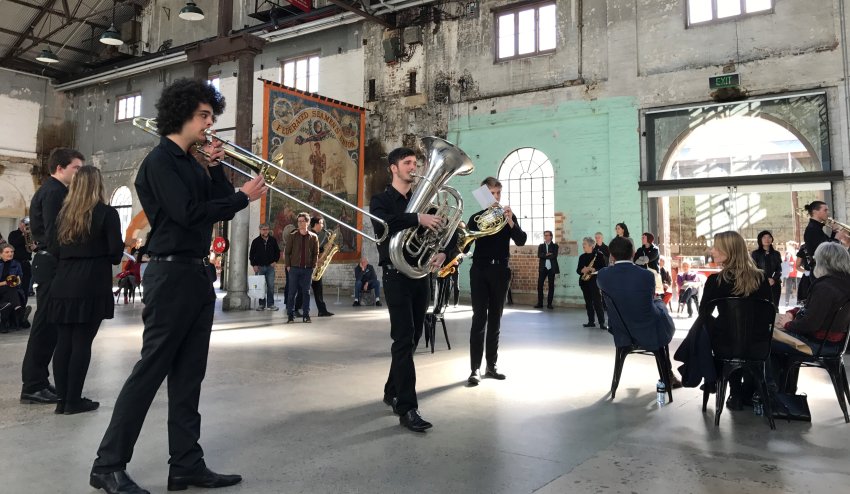
The Great Strike 1917
Produced and directed by Amanda King and Fabio Cavadini
Premiering as part of the Antenna Documentary Film Festival, Sydney.
October 20, 4pm, Dendy Newtown and October 26, 4pm, Palace Verona.
Includes Q&A with directors
***
Filmmakers Amanda King and Fabio Cavadini have collaborated on a number of projects about significant, but lesser known, subjects in Australian history. Together, they have now brought one of the great hidden events of labour history in this country to the big screen.
The Great Strike 1917 retells the largely forgotten story of one of Australia's biggest industrial struggles and its impact on society.
In August 1917, workers in the Eveleigh Rail Yards — today known as Carriageworks — and Randwick Tram Depot went on strike to protest the introduction of a new timecard system designed to speed up workplace productivity and reduce wages.
The strike soon grew to involve huge solidarity actions and mass marches through Sydney and elsewhere. It lasted more than two months and involved more than 150,000 workers, spreading well beyond the rail yards to many other worksites, industries and regions.
The strike shook the country to the core, prompting cries of "revolution" from both sides of the struggle. Its effects rippled through the labour movement for many years.
In 2017, Carriageworks hosted a major exhibition to commemorate the centenary of the Great Strike, together with Unions NSW, the City of Sydney and the National Film and Sound Archive of Australia.
On the eve of the film’s world premiere, King and Cavadini spoke to Green Left Weekly about the political background to the film and lessons for today's union movement
King said: "This story is about the use of state power against organised workers. It's about class conflict and employers' attempts to use new technology to drive up productivity. It's about the arming of strike-breakers and the murder of a striker, with no one convicted for the crime.
“It shows the vindictive role of the system against its workers.
"On the other side, it shows the relative strength of unionism at the time. More than 150,000 strikers and supporters marched in solidarity, with huge public opposition to the use of non-union labour.
"In the context of World War I, after years of deprivation, workers resented being pushed for even more sacrifice while rich people were getting even wealthier. And the Russian Revolution, well under way on the other side of the world, was an influence.”
Regarding lessons for today’s labour movement, Cavadini said: “The strike showed the importance of solidarity and the need to stand together. The 1917 workers held out for many weeks against overwhelming odds.
“That feeling of solidarity in struggle is being shown today by the high school students in their strike against climate change.”
King added: “The attacks on the trade union movement are continuing and are just as virulent as in 1917. We saw this in the Patrick Dispute in 1998, and in the current actions of the [Australian Building and Construction Commission] and the government's new anti-union so-called Ensuring Integrity Bill.
“Workers today need to stand up and fight, just as the workers did with such strength in the 1917 Great Strike.”
[The Great Strike 1917 has been selected as a finalist in the 2019 ATOM Awards. King and Cavadini are planning a follow-up documentary about the Maritime Union of Australia’s struggle against Patrick in 1998, under a working title of An Unlawful Conspiracy.]